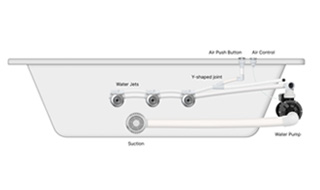So how do you move beyond fixed models and make smarter choices? Let's look at a few common scenarios:
Heavy-use commercial spaces
For example, in hotels and spa clubs, hot tubs are used very frequently and the water quality is a heavy burden. If ordinary cartridges are still used, frequent cleaning, short life, and operating costs will remain high.
In this case, a large filtration area, a high pleat density cartridge is more appropriate, it can extend the replacement cycle, reduce downtime maintenance time, and so on.
Health-focused families
More and more homeowners care about safety. Filters with antibacterial materials help reduce bacterial growth. They cost more, but for health-conscious families, the value far outweighs the price difference.
Older users who want convenience
For seniors, tricky installation is a real barrier. Filters with built-in handles make replacement quick and stress-free. A small detail, but it makes a big impact.
Price-sensitive markets
Not every customer is ready to pay for premium features. Standard filters remain the most competitive option in cost-driven markets. The key is balance, mixing models to match different customer groups.
When you look at it this way, filters aren't just 'nice-to-haves.' They are strategic tools designed for specific needs. For wholesalers and brands, moving from simply selling products to providing real solutions makes all the difference.




































